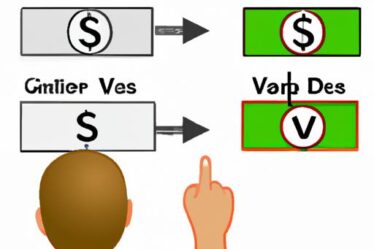Introduction
When delving into the realm of home equity loans, one term that holds significant weight is the “rate for home equity loan.” But what exactly does this entail? In simple terms, a home equity loan rate refers to the interest rate applied to the borrowed funds secured by your home’s equity. It plays a crucial role in determining the overall cost of your loan and the subsequent repayment amount.
Understanding the rate for a home equity loan is paramount for any homeowner considering this financial option. With interest rates influencing the total amount you’ll pay back over time, grasping this concept can empower you to make informed decisions and secure the best possible deal. Let’s delve deeper into the factors that impact these rates and how they can affect your financial journey.
Factors that Affect Home Equity Loan Rates
Credit Score
Your credit score is a pivotal factor that can significantly influence the rate you receive on a home equity loan. Lenders use your credit score to assess your creditworthiness and determine the level of risk associated with lending to you. A higher credit score typically translates to lower interest rates, as it signals to lenders that you are more likely to repay the loan on time.
Loan-to-Value Ratio
The loan-to-value (LTV) ratio is another crucial element that impacts home equity loan rates. This ratio compares the amount you owe on your mortgage to the current value of your home. A lower LTV ratio indicates less risk for the lender, potentially leading to more favorable interest rates. Keeping your LTV ratio in check by paying down your mortgage or increasing your home’s value can help secure better loan terms.
Market Conditions
Market conditions, including economic factors and interest rate trends, play a significant role in determining home equity loan rates. Lenders adjust their rates based on market dynamics, such as the Federal Reserve’s policies and overall economic stability. Being aware of these external factors can help you anticipate potential rate changes and make informed decisions regarding your home equity loan.
Conclusion
In conclusion, navigating the world of home equity loans can be a complex yet rewarding journey. Understanding the rate for a home equity loan is pivotal in making sound financial decisions. By considering factors such as credit score, loan-to-value ratio, and market conditions, you can better comprehend how rates are determined and how they impact your overall loan experience.
Exploring national averages and regional variations in home equity loan rates can provide valuable insights into the prevailing market trends. Additionally, knowing how to find the best rate for a home equity loan by comparing rates, improving your credit score, and carefully considering loan terms can significantly impact your financial well-being. Armed with this knowledge, you are better equipped to secure a favorable rate and embark on a successful home equity loan journey.

